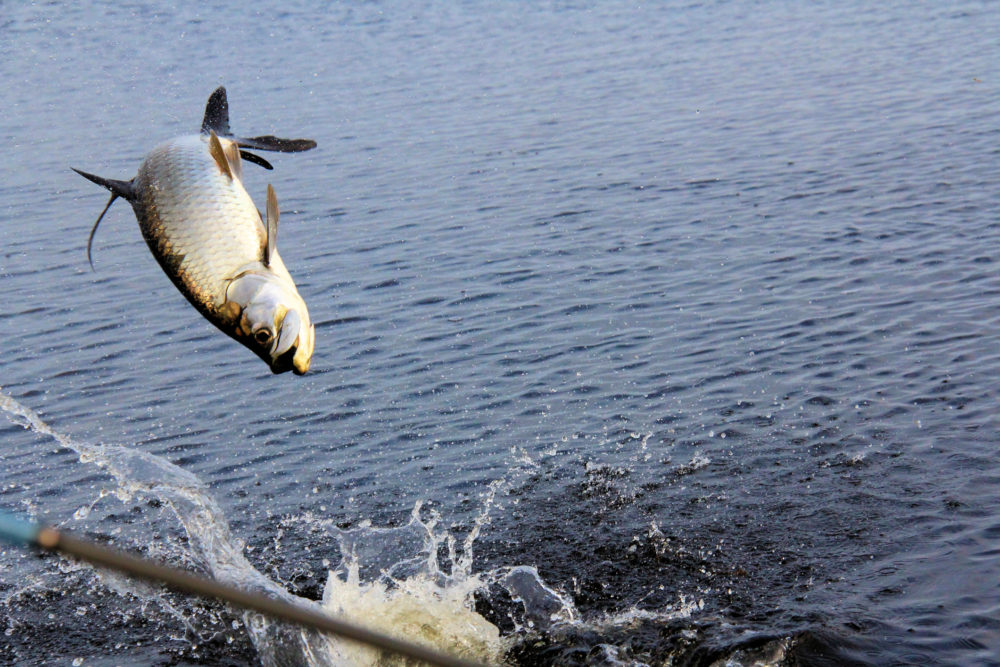Fishing resources and tips for the empowered female angler.
7 Facts You Didn’t Know About Tarpon
May 9, 2012

You read about them in Randy Wayne White’s novels, you watch them on sport fishing television shows, and hear about the much anticipated arrival of the migrating schools in Southwest Florida every year. Yes, I’m paying online homage to one of the most popular saltwater game fish of all time — the tarpon. If a tarpon trip is on your bucket list, you may want to do some preliminary research in order to learn more about tarpon before you go.
Here are seven facts about Megalops atlanticus, the species found on the western Atlantic coast (from Virginia to Brazil), along the coastlines of the Gulf of Mexico, and in the Caribbean:
- Fossil research shows that tarpon have been swimming in our oceans since prehistoric times.
- Tarpon can grow up to 8 feet in length and weigh up to 280 pounds.
- While tarpon are primarily found in coastal waters or estuaries, they also have the ability to live in brackish water and can occasionally be found in freshwater lakes and rivers.
- Tarpon can survive in waters of varying pH, as well as habitats with low dissolved oxygen content due to their swim bladders which they use primarily to breathe.
- Tarpon are only fished on a recreational basis in the state of Florida. Tarpon anglers exclusively practice catch and release since the fish is one of the world’s top saltwater game fish and is not considered to be of food value. According to Florida regulations, when a tarpon over 40-inches in length is caught, it must remain in the water.
- Tarpon thrive in water temperatures of 72 to 82°F. When water temperatures drop below 60°F they become inactive and if temperatures drop beneath 40°F, tarpon cannot survive.
- The life span of a tarpon can exceed 50 years. The oldest tarpon on record in captivity was 63 years old.
How often do you research and study new species that you plan to target? When you learn more about certain species anatomy and behavior patterns, you can apply that knowledge to your fishing techniques. If you’ve recently learned something surprising and new about the behavior of one of your favorite sport fish species, share it with me on the Shefishes2.com Facebook Page.